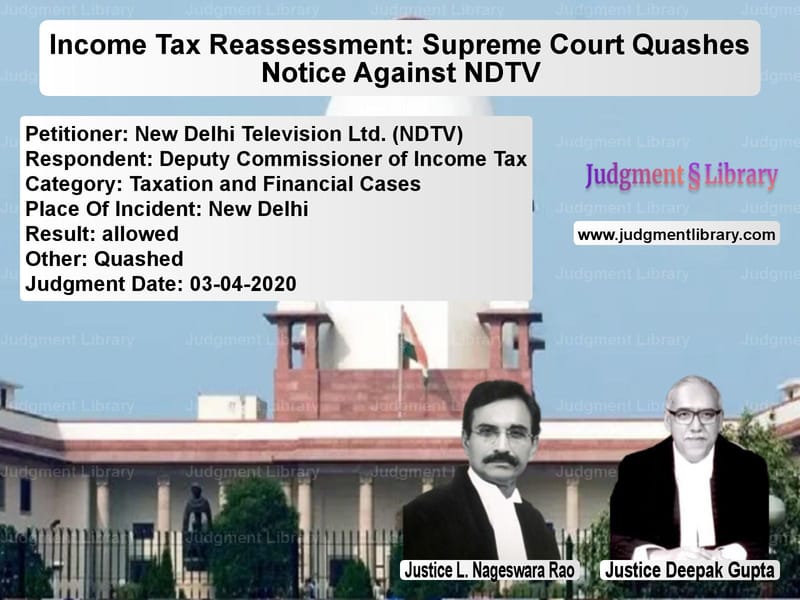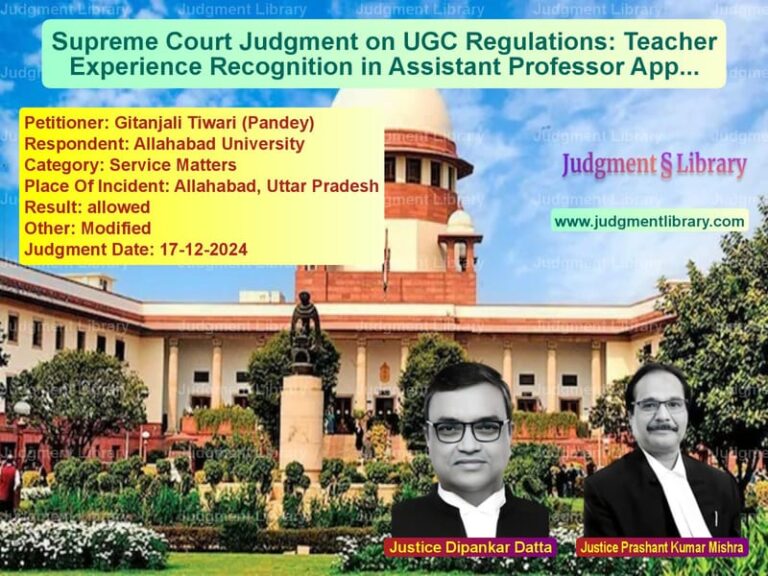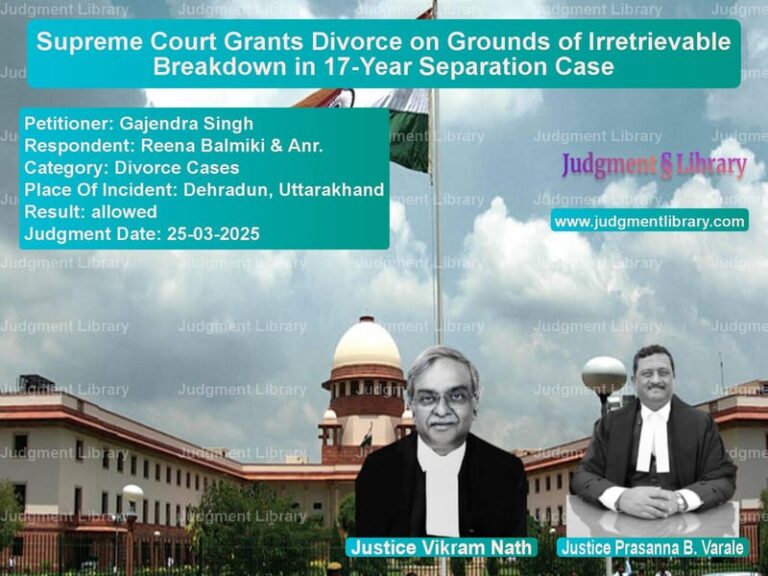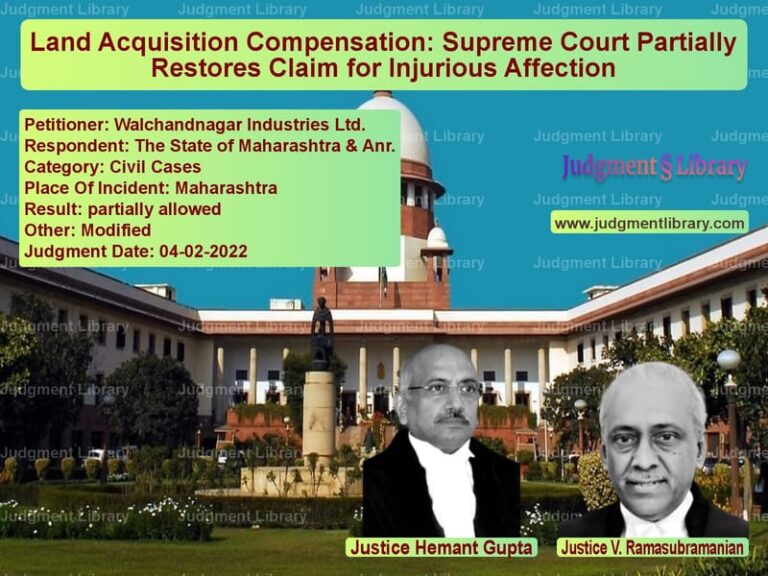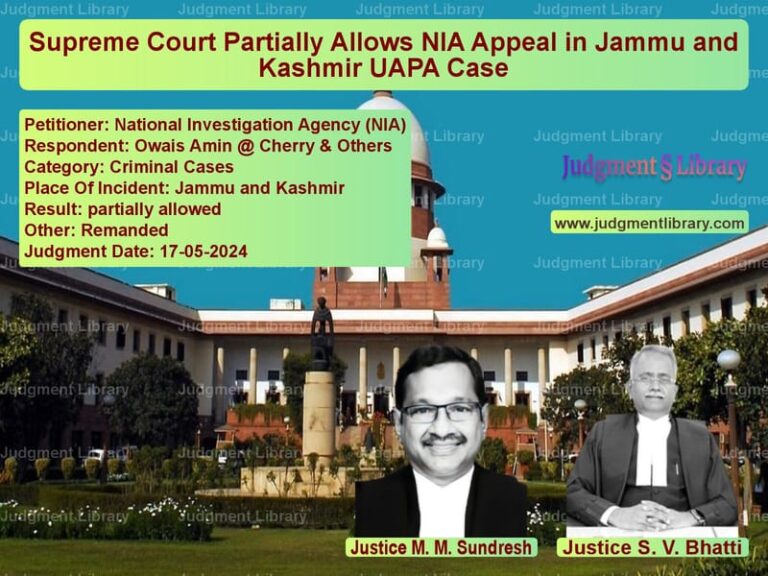Income Tax Reassessment: Supreme Court Quashes Notice Against NDTV
The case of New Delhi Television Ltd. (NDTV) vs. Deputy Commissioner of Income Tax dealt with the legality of an income tax reassessment notice issued against NDTV for the assessment year 2008-09. The Supreme Court had to determine whether the reopening of the assessment was valid, given the alleged failure of NDTV to disclose material facts. The Court ultimately quashed the notice, ruling that the reopening was invalid beyond the four-year limitation period.
Background of the Case
NDTV, a media company running various television channels, filed its income tax return for the financial year 2007-08, declaring a loss. The case was selected for scrutiny, and an assessment order was passed in 2012. However, in 2015, the tax department issued a notice under Section 148 of the Income Tax Act, seeking to reopen the assessment on the ground that income of Rs. 405.09 crores had escaped assessment.
The primary issue related to NDTV’s issuance of Step-Up Coupon Bonds worth $100 million through its UK subsidiary, NDTV Network Plc. The tax department alleged that the funds introduced into NDTV’s books through these bonds were a sham transaction, amounting to round-tripping of undisclosed income.
Key Legal Issues
- Did NDTV fail to disclose all material facts necessary for assessment?
- Was the reopening of assessment valid beyond the four-year limitation period?
- Could the revenue invoke the extended 16-year limitation period under the second proviso to Section 147?
Petitioner’s Arguments (NDTV)
- NDTV argued that all material facts, including the issuance of bonds and details of investors, were fully disclosed during the original assessment.
- The tax department’s allegation of round-tripping was based on mere suspicion without new tangible evidence.
- The notice for reassessment was issued after four years, and since there was no failure to disclose facts, the reopening was barred by limitation.
- The tax department’s reliance on the 16-year limitation period for undisclosed foreign assets was misplaced since the funds were raised legally.
Respondent’s Arguments (Income Tax Department)
- The tax department contended that NDTV’s UK subsidiary had no business activity and merely acted as a conduit for round-tripping of funds.
- The reassessment notice was valid as new information had come to light from tax evasion petitions filed by minority shareholders.
- Even if NDTV had disclosed the bond transactions, the real nature of the funds remained concealed.
- The tax department was entitled to rely on the extended 16-year limitation period under the second proviso to Section 147.
Supreme Court’s Observations
The Supreme Court examined the validity of the reassessment notice and made the following key observations:
- NDTV had disclosed the issuance of bonds, details of investors, and the redemption of bonds at a discount during the original assessment.
- The tax department was aware of the transactions and had even imposed a guarantee fee on NDTV’s books in the original assessment.
- Reassessment beyond four years is permitted only if there is a failure to disclose material facts, which was not the case here.
- The extended 16-year limitation period under Section 147 could not be invoked as the notice did not initially rely on this provision.
The Court stated, “The assessee disclosed all primary facts necessary for assessment. The revenue’s attempt to reopen the case after four years without new tangible material is unsustainable.”
Final Judgment
The Supreme Court ruled in favor of NDTV and quashed the reassessment notice:
- The reopening of assessment was barred by limitation as there was no failure to disclose material facts.
- The revenue could not invoke the 16-year limitation period without specifically mentioning it in the original notice.
- The tax department was free to issue a fresh notice under the 16-year limitation period if legally permissible.
Implications of the Judgment
The ruling has significant implications for tax reassessment cases:
- Reassessment beyond four years requires clear evidence of failure to disclose material facts.
- Tax authorities must specify the grounds for invoking extended limitation periods at the outset.
- The decision protects taxpayers from arbitrary reopening of assessments based on mere suspicion.
The judgment reinforces the principle that reassessment should be based on tangible new material and not a mere change of opinion.
Petitioner Name: New Delhi Television Ltd. (NDTV).Respondent Name: Deputy Commissioner of Income Tax.Judgment By: Justice L. Nageswara Rao, Justice Deepak Gupta.Place Of Incident: New Delhi.Judgment Date: 03-04-2020.
Don’t miss out on the full details! Download the complete judgment in PDF format below and gain valuable insights instantly!
Download Judgment: New Delhi Television vs Deputy Commissioner Supreme Court of India Judgment Dated 03-04-2020.pdf
Direct Downlaod Judgment: Direct downlaod this Judgment
See all petitions in Income Tax Disputes
See all petitions in Tax Evasion Cases
See all petitions in Banking Regulations
See all petitions in Judgment by L. Nageswara Rao
See all petitions in Judgment by Deepak Gupta
See all petitions in allowed
See all petitions in Quashed
See all petitions in supreme court of India judgments April 2020
See all petitions in 2020 judgments
See all posts in Taxation and Financial Cases Category
See all allowed petitions in Taxation and Financial Cases Category
See all Dismissed petitions in Taxation and Financial Cases Category
See all partially allowed petitions in Taxation and Financial Cases Category

